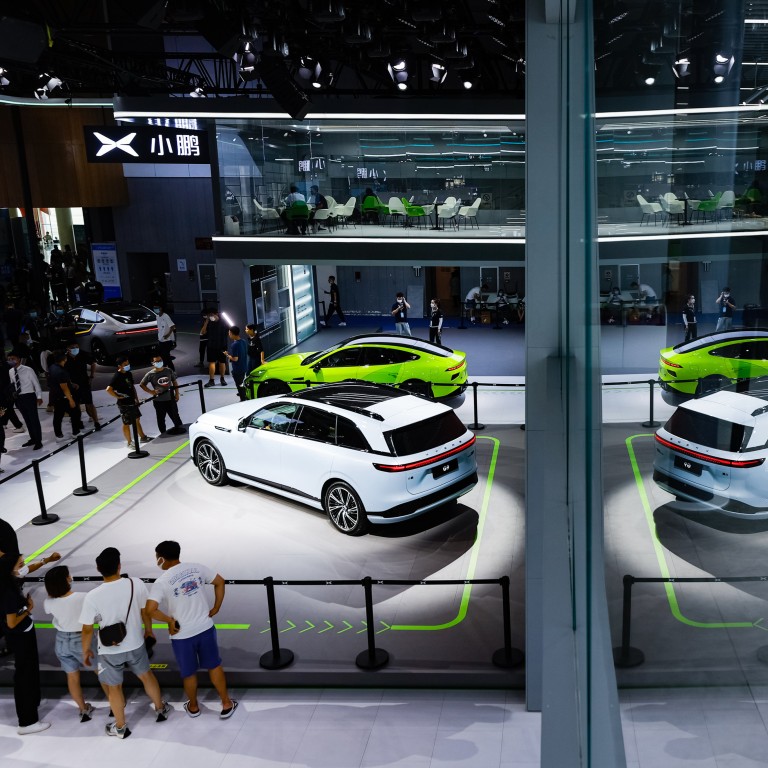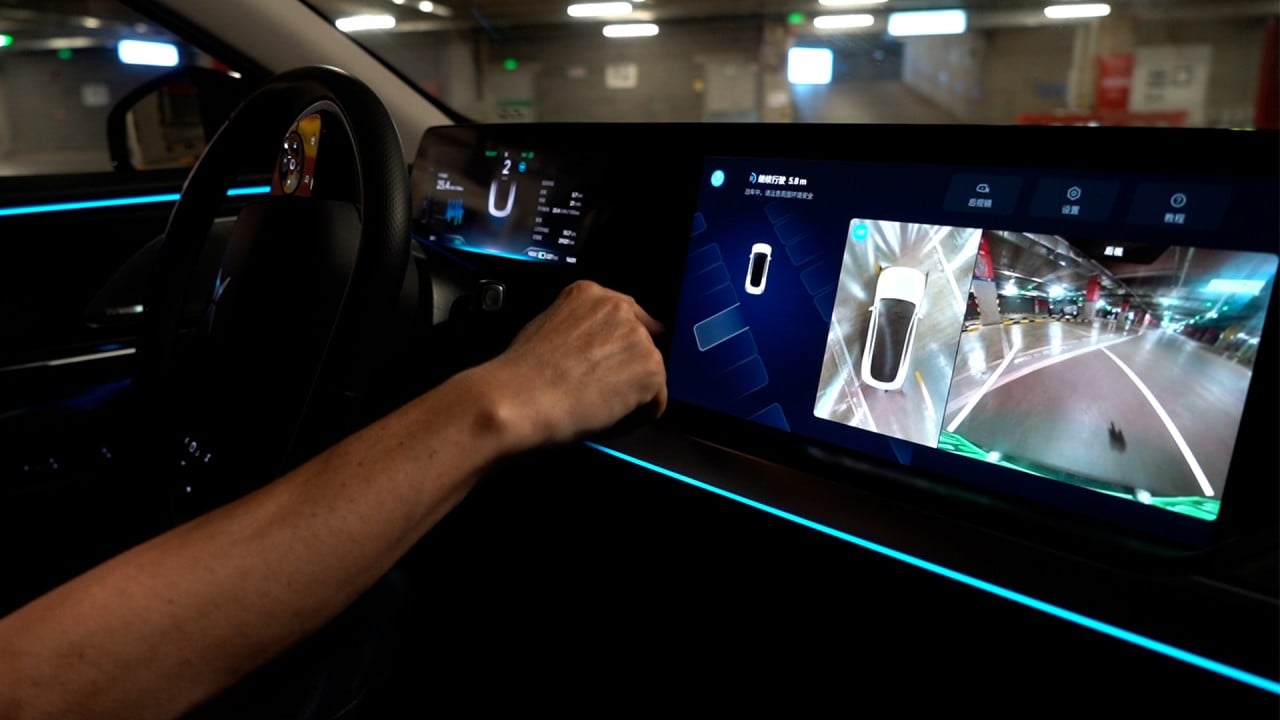
Tesla challenger Xpeng sparks all-out price war in China’s cutthroat premium electric car sector with steep discounts
- The Chinese carmaker slashed the prices of its P5 and P7 saloons, and its G3i SUV, by 10 to 13 per cent, having cut production costs
- ‘A price war in the premium EV segment looks inevitable now that Tesla and Xpeng have massively slashed prices,’ marketing expert says
Xpeng said on Tuesday afternoon that its bestselling P7 model would now start at 209,900 yuan (US$30,976), a discount of 12.5 per cent from the previous price.
It reduced the prices of its P5 and P7 saloons as well as its G3i sport-utility vehicles (SUVs), by 10 to 13 per cent, saying the lower prices were made possible by its efforts to slash production costs.
Xpeng kept the price of the G9, a luxury SUV that hit the market in October, unchanged.
“We hope more people can access smart vehicles after we make our cars increasingly affordable,” Xpeng said in a statement to the Post after announcing the price cuts. “Looking forward, we will improve supply-chain management, cost control, production efficiency and customer service to bring better experience to our customers through technological innovations.”
The carmaker, which is backed by Alibaba, the owner of this newspaper, and smartphone vendor Xiaomi, said the price cuts would take effect immediately.
On October 24, the American giant offered discounts of up to 9.4 per cent on the Model 3 and Model Y vehicles before slashing prices by as much as 13.5 per cent on January 6.
The possibility that Tesla might raise prices again later this year when sales rebound could not be ruled out, according to UBS analyst Paul Gong.
BYD beats Tesla in 2022 EV sales, vindicating Warren Buffett’s bet
The M5’s entry-level vehicle now sells for 259,800 yuan, a fraction cheaper than the basic edition of the Model Y.
“A cutthroat market is forcing some players to offer price cuts to attract customers because more Chinese drivers are shunning expensive electric cars and turning to value-for-money products manufactured by domestic companies like BYD,” said Chen Xiao, CEO of Shanghai Yacheng Culture, a marketing and branding company.
“A price war in the premium EV segment looks inevitable now that Tesla and Xpeng have massively slashed prices [of their vehicles].”
China’s premium EV segment has been dominated by Tesla and three home-grown start-ups, Xpeng, Li Auto and Nio.
Nio and Li Auto have yet to cut the prices of their comparable models. Nio’s ET5 and Li Auto’s L9, for example, have stayed flat at 328,000 yuan and 459,800 yuan, respectively.
Since late 2022, mainland motorists have been drifting down market towards cheaper models, unnerved by worries about their job prospects and wages, analysts and dealers said.


